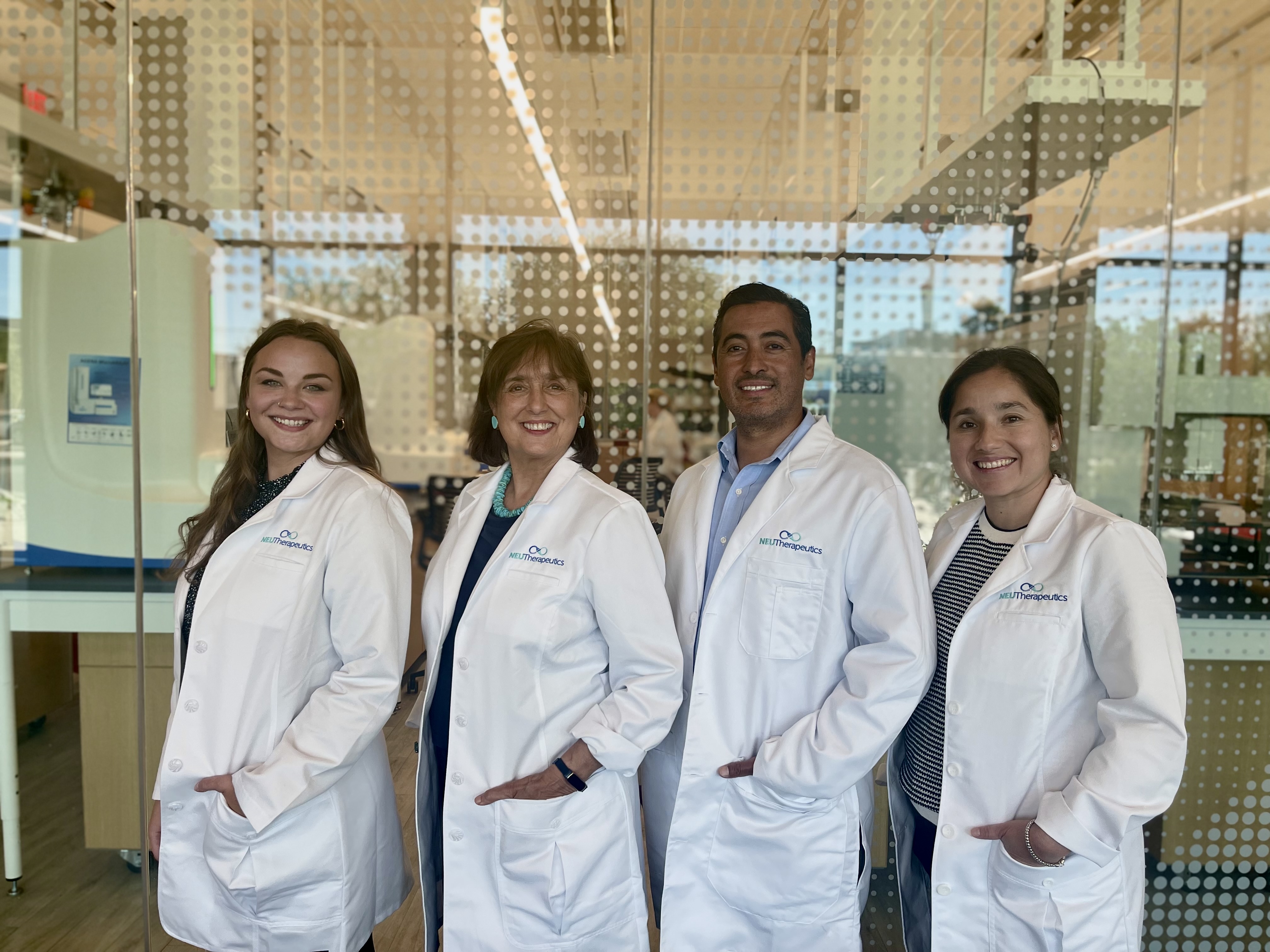TUCSON, Ariz. – NeuTherapeutics, a Tucson startup founded to commercialize University of Arizona technology has received a $2.5M Small Business Innovation Research (SBIR) grant from the National Institutes of Health/ National Institute on Aging (NIA) to conduct a Phase 2 clinical trial to evaluate the impact of a new dietary supplement, PhytoSERM, on menopausal hot flashes in women.

Launching this October, this Phase 2 SBIR grant will support the HF Relief Clinical Trial with more than 100 participants at the University of Arizona’s Clinical and Translational Sciences Research Center (CATS). The clinical trial follows a successful previous double-blind placebo controlled Phase 1b/2a clinical trial in 72 women that found that PhytoSERM was safe and well-tolerated, and decreased the number of hot flashes in women experiencing large numbers of hot flashes.
Developed by Dr. Roberta Diaz Brinton, founder of NeuTherapeutics, and director of the University of Arizona Center for Innovation in Brain Science, PhytoSERM is a food supplement that contains three phytoestrogens. Phytoestrogens are naturally occurring compounds derived from plants that can function like the primary female sex hormone—estrogen. This natural therapy could provide relief for menopausal symptoms like hot flashes.

According to Dr. Brinton, “We developed PhytoSERM as a safe, natural and effective approach for menopausal symptoms to address an unmet need in women’s health. Many women going through menopause experience symptoms, like hot flashes, which can disrupt their daily routines and sleep patterns. Unfortunately, many women will endure menopausal symptoms without seeking symptom relief because of a fear of breast cancer. PhytoSERM is the culmination of decades of rigorous, independently evaluated research to address an unmet need in women’s health - relief of menopausal symptoms that promotes both brain and breast health.”
The clinical trial is recruiting 132 healthy women with menopause related hot flashes between the ages of 45 and 60 for a 30-week study. The first half of the study will be randomized, double-blinded and placebo controlled, while in the second half of the study all women will receive PhytoSERM.
Women experiencing hot flashes that disrupt their lives and are not currently utilizing hormone replacement therapy or other prescription treatments for hot flashes are eligible to participate in the clinical trial and will receive compensation. Women interested in participating can visit hfrelief.org or call (520) 254-7791. Enrollment in the trial will begin in early October.
NeuTherapeutics utilized key resources within the Tucson entrepreneurial ecosystem to secure the grant. University researchers worked with Tech Launch Arizona (TLA), the commercialization arm of the university, to protect the intellectual property, strategize, form NeuTherapeutics, and complete the I-Corps customer discovery program. NeuTherapeutics advanced their business by joining the University of Arizona Center for Innovation (UACI), the university’s incubator network, working with subject matter experts on the commercialization plan required for the SBIR II grant application.
According to Dr. Brinton, “Award of this critical grant from the National Institute on Aging would not have been possible without the support of the entire U of A entrepreneurial ecosystem. UACI and TLA have been critical in propelling NeuTherapeutics forward. Having traveled the country speaking with other academic innovators, I can say that the University of Arizona’s support for startups is second to none.”
About NeuTherapeutics:
NeuTherapeutics is an innovative neuroscience biotech company whose singular goal is to provide safe and effective regenerative treatments for the brain that roll back the impacts of neurodegenerative diseases, improving lifespan and quality of life for patients and their families. NeuTherapeutics brings decades of innovative research experience to our work that advances the treatments patients need today. Founded by Dr. Roberta Brinton, Director of the University of Arizona’s Center for Innovation in Brain Science, NT is currently developing Allopregnanolone as a treatment for Alzheimer’s and other neurodegenerative diseases as well as PhytoSERMs as a dietary supplement to alleviate temporary menopausal hot flashes.
About the Center for Innovation in Brain Science
The Center for Innovation in Brain Science (CIBS) at the University of Arizona is addressing the challenge that, in the 21st century, there is not a single cure for a single neurodegenerative disease. The Center is focused on four age-associated neurodegenerative diseases: Alzheimer’s, Parkinson’s, Multiple Sclerosis and ALS, with expertise spanning discovery, translational, regulatory and clinical science. CIBS is shifting the research paradigm as one of the nation’s leading academic/biotech research centers, pioneering patient-inspired, data-driven approaches to find cures for Alzheimer’s and other neurodegenerative diseases. cibs.uahs.arizona.edu. (Follow us: Twitter, Facebook)
About the UA Center for Innovation
The University of Arizona Center for Innovation (UACI) is a startup incubator network with outposts across the Southern Arizona region. For two decades, the program has directly served 235 companies, impacting thousands of entrepreneurs who have attracted $105.8M in capital. This is done by providing access to people, programming, and places that help entrepreneurs take their companies from idea to market. With the mission to fuel the Arizona economy, UACI works to help scale science and tech-based startups under the scope of Tech Parks Arizona creating university-based economic impact.
About Tech Launch Arizona
Tech Launch Arizona is the office of the University of Arizona that creates social and economic impact through commercializing inventions stemming from UA research. The office builds connections between talented UA faculty, researchers and staff and experienced entrepreneurs and investors, to strategically link an ecosystem that refines ideas that start in university research and innovation and grows them into new products and thriving businesses that benefit society. Since its inception in 2013, the office has licensed hundreds of inventions for commercialization and facilitated the launch of over 135 startups, and its work has generated over $1.6 billion in economic output for Arizona.


 TechParksArizona.edu
TechParksArizona.edu
 Apply
Apply
 Stay Connected
Stay Connected
 Login
Login